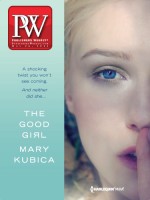“For decades, aspiring authors were taught to bow before the altar of Big Publishing. Writers were taught that publishers alone possessed the wisdom to determine if a writer deserved passage through the pearly gates of author heaven.... They were taught that without a publisher’s blessing, they were failed writers.”
The quote above is from Mark Coker, founder of Smashwords, the world’s largest distributor of self-published e-books, a company that has helped thousands of people get their stories published. Coker’s sentiment is one I hear a lot these days. It has become the essence of a rallying cry for the many who are striving to have their own work published or recorded or otherwise somehow heard; increasingly, they are doing it themselves. The screed against Big Publishing—often derisively referred to as “the Gatekeepers”—has given a kind of ideological jolt to the digital revolution in publishing, as if there’s a liberation unfolding, with the people being given voice long denied them.
I agree that having access to tools that allow an individual to publish his or her own work is wonderful; it is an important technological advance. In a democracy, it goes without saying that anything that expands access to expression and dissemination of ideas is a good thing. First, it was desktop publishing in the 1980s that broadened such access (and made it cheaper); now it is part and parcel of the digital revolution, and there is no lack of companies out there offering professional expertise in a competitive market, Publishers Weekly among them.
Although occasional defenses of traditional publishing are heard—in praise of Gatekeepers, as it were (one such defense, by former publishing veteran and now acclaimed novelist Chris Pavone, recently appeared in PW)—these defenses tend to stress the quality of professional editing and marketing services. But let’s look at the charge that Big Publishing is standing in the way of would-be writers reaching those “pearly gates of author heaven.” True, those five or six big publishing outfits don’t publish everyone; they are bottom-line oriented and are accustomed to having their books and authors receive the bulk of whatever media attention goes to books and authors these days. But have people forgotten that publishing does not begin and end with Big Publishing?
I’m talking about small presses.
I began working in publishing more than 30 years ago, with a small literary press in upstate New York. We worked out of an old house in the country with a house dog, a Mergenthaler typesetting machine, a light table, a waxer, and a balky furnace. On our list were Lydia Davis, Paul Auster, John Cage, Cathy Acker, Charles Bernstein, Bill T. Jones, and Charles Simic. That distinguished list from three decades ago was not uncommon for many small houses at the time, which were by no means all literary: there were gay presses, lesbian presses, left-wing, right-wing, Latino, and many religion houses—Curbstone, Firebrand, Women of Color Press, Alyson, North Point, Regnery, Orbis. They were small and they were many. These presses, and their successors, have been opening gates for decades—to new talent, new voices, nonmainstream work, and innovation. Is it the Coffee Houses, Two-Dollar Radios, Cinco Puntoses, Cleieses, Akashics, Seven Stories, and McPhersons that are also slamming the pearly gates on deserving writers? Are the people who run these houses part of some conspiracy to serve an elite? On the contrary: they are making their names by taking chances on new voices and forgotten voices and silenced voices.
Big Publishing, too, has acquitted itself well enough without my defense. It has taken chances on all sorts of writers over the decades and helped build our literary culture. But it is not the only game in town. It has never been the only game in town. The larger publishing houses have always existed within an ecosystem in which small, independent publishers—and university presses—across the country found new talent. With the recent growth of self-publishing, there are simply more voices that can be heard—a good thing. But it is not true that the traditional publishing business, whether large houses or small, has ever been in the business of silencing anyone. On the contrary: traditional publishing has helped make incontrovertible the fact that books are essential to our culture. No wonder so many people want to be authors.



 Volume 261
Issue 21
05/26/2014
Volume 261
Issue 21
05/26/2014





